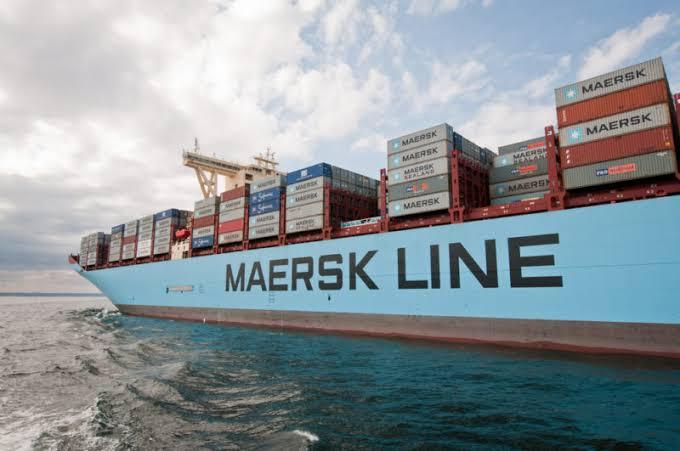By Uzor Odigbo
Sequel to the International Maritime Organization (IMO) agenda 2020 for all cargo vessels to run on fuels with less sulphur content, effective January 1st , Maersk has announced full compliant with the directive to operate its ships with cleaner vessel fuel.
Besides, the Danish shipping giant has stopped calls of vessels designated for Lagos port, saying that all Maersk line vessels would henceforth patronise the Onne port in Rivers State from January 1, 2020.
In a statement made available to TheNiche on Thursday and signed by Chibuzor Ejiofor, the Maersk branch manager East Nigeria, the company explained that vessels from the Far East Asia would no longer call at Lagos port.
It further stated: “Dear Esteemed Customer, “Maersk, wishes all her esteemed customers a Happy New Year, we thank you for your patronage in the previous years and look forward to increased partnership in 2020.
“Further more, it is our pleasure to announce that our Far East (China, Vietnam, Malaysia, Singapore) Service will no longer be calling Lagos Ports but now comes to Onne directly, giving you a reduced transit time.
“In line with complying with the directive of the International Maritime Organization Agenda 2020, which is for all cargo vessels to run on fuels with less sulphur content, effective January 1st 2020, Maersk is already fully compliant with this directive to operate her vessels with cleaner vessel fuel.
“This technology of clearner fuel for our ships comes at a cost, which we will communicate going foward.
“Maersk encourages all her customers to take advantage of our ocean and inland products (Cargo Trucking, Warehousing, Customs House Brokerage, Value Protect , spot booking on export cargo etc) for a complete end -to-end service experience.
“Kindly, let me know if further clarifications is needed.
“Once again we wish you a Happy and prosperous 2020.”
However the regulation has been developed and adopted by the International Maritime Organisation (IMO), a specialised agency under the United Nations (UN). Whereas today ships can use fuel with a sulphur content of 3.5%, the new sulphur cap will be 0.5%.
To become compliant shipowners will have to invest in compliant fuels, LNG or scrubber technology. This is expected to lower global shipping’s sulphur emissions, a known source for respiratory disease and acid rain, by more than 80%.
“We fully support the new rules. They will be a significant benefit to the environment and to human health”, says Vincent Clerc, Chief Commercial Officer, A.P. Moller – Maersk A/S.
“The 2020 sulphur cap is a game changer for the shipping industry. Maersk preparations to comply are well underway and so are our customers’ efforts to plan ahead.
The new BAF is a simple, fair and predictable mechanism that ensures clarity for our customers in planning their supply chains for this significant shift.”
The regulation will bring increases and uncertainty to fuel costs for shipping. The BAF surcharge is designed to recover increases in fuel related costs. It will be charged separately from Maersk Line’s freight rate.
According to industry estimates, more than 90% of the global vessel fleet will be relying on compliant fuels when the sulphur rules step into force on 1 January 2020. This will also be the case for the Maersk Line fleet, despite a recent investment in a limited number of scrubbers.















